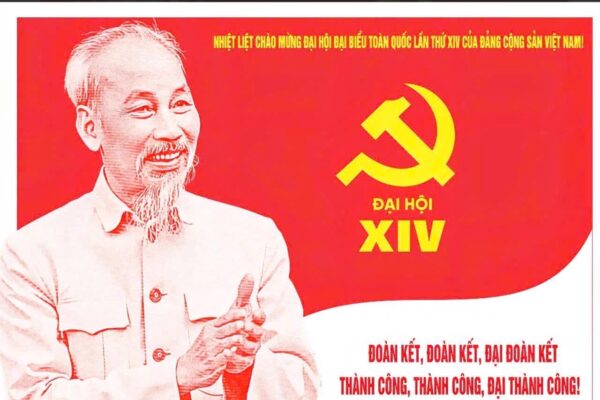
DHAKA : Calling upon all to save the country from chaos and violence, Nobel laureate Prof Muhammad Yunus on Thursday said restoring law and order would be his first priority to take the country forward.
“Keeping faith in me, you have invited me; the students have invited me and I have responded to that invitation. My appeal to the pepole: if you have faith in me and trust me, then ensure that no attack is carried out on anyone and anywhere in the country. This is our first responsibility,” he told a crowded news briefing upon his arrival in Dhaka from abroad in the afternoon.
Flanked by navy and air force chiefs, Chief of Army Staff Gen Waker-uz-Zaman received Yunus at the airport.
Some key organisers of the anti-discrimination student movement and representatives of the civil society were also present at the airport to welcome the Nobel laureate.
The student leaders had earlier proposed Yunus for the position of chief adviser of an interim government.
Yunus said, “Today is our day of glory. We have to move forward keeping in mind the revolution through which a new Victory Day has been created in Bangladesh today.”
The microcredit pioneer expressed his gratitude to the young people who made it possible. “They have saved this country. They have given rebirth to our country. Our pledge is that we will take the country forward at a very fast pace after this rebirth.”
In a choking voice, Yunus paid tribute to Abu Sayed, the student who was among those killed first in police firing during the anti-discrimination student movement.
“I am remembering Abu Sayed. His image is etched in the mind of each Bangladeshi. No one will be able to forget it — an incredibly courageous young man standing in front of guns. No young men and women accepted defeat after that, and they marched forward,” he said, his voice choking with emotion.
The movement then spread across the country and Bangladesh achieved independence for the second time, Yunus said.
He said the people must protect this freedom. “We also have to make sure that the benefits of this freedom reach every citizen. Else, the freedom would be meaningless. So, we pledge to take the freedom to every home.”
Interim govt takes over
Yunus, 13 advisers sworn in; 3 others to take oath later
President Mohammed Shahabuddin swearing in Prof Muhammad Yunus as the chief adviser to the interim government at the Bangabhaban last night. Photo: PID
The interim government headed by Nobel Laureate Prof Muhammad Yunus took oath Wednesday night, four days after the resignation and departure of former prime minister Sheikh Hasina amid a mass upsurge led by students.
Prof Yunus, the 84-year-old champion of microcredit, has 16 advisers to fill the power vacuum in these turbulent times.
It is not clear for how long the interim government will be in power. The Daily Star asked the question to four of the advisers last night, but none of them could give an answer.
For years, he was subject to bitter criticism from Hasina and the Awami League.
There is a void in the law and order with the almost entire police force remaining absent after widespread attacks on police stations and outposts. The attacks started even before the fall of the Hasina-led government on Monday. On roads, students and volunteers took up the responsibility of directing traffic.
Political analysts say the Yunus-led caretaker government must act quickly to ensure safety of people’s lives and properties, restore law and order, and the civil administration, which has been on the verge of collapse, and prepare a democratic atmosphere for the next general polls.
President Mohammed Shahabuddin administered the oath of office and oath of secrecy to Prof Yunus and the 16 advisers at the Bangabhaban Darbar Hall around 9:30pm. Cabinet Secretary Mahbub Hossain conducted the ceremony.
Attired in a Grameen check punjabi and a white vest, Prof Yunus arrived from his Gulshan home to the Bangabhaban and received a standing ovation.
He won the Nobel Peace Prize for 2006 along with the Grameen Bank for their work to “create economic and social development from below”.
The new advisors are Salehuddin Ahmed, a former Governor of the Bangladesh Bank; Asif Nazrul, a law professor at Dhaka University; Adilur Rahman, secretary of rights organisation Odhikar; Hassan Ariff, former attorney general and adviser to the caretaker government led by Fakhruddin Ahmed; Touhid Hossain, former foreign secretary; Syeda Rezwana Hasan, chief executive of BELA; and Sharmeen Murshid, chief executive officer of election watchdog Brotee.
The other advisers are Faruk-e-Azam, a freedom fighter; Brig Gen (retd) Sakhawat Hossain, former election commissioner; Supradip Chakma, chairman of Chittagong Hill Tracts Development Board and former ambassador; Bidhan Ranjan, a psychiatrist; AFM Khalid Hossain, nayeb-e-ameer of Hefazat-e-Islam and adviser to Islami Andolan Bangladesh; Farida Akhter, women rights activist; and Nurjahan Begum, trustee board member of Grameen Telecom.
Nahid Islam and Asif Mahmud Sajeeb Bhuiyan, two key organisers of the student movement, are also in the advisory council.
Supradip Chakma, Bidhan Ranjan Roy, and Faruk-e-Azam could not be sworn in as they are outside the capital, said the cabinet secretary.
This is the first time in the history of Bangladesh that students of Dhaka University are in the advisory council. They now have the rank of a minister.
The chief adviser to the interim government enjoys the status of prime minister.
Student protests demanding reform in quotas in government jobs began on July 1, and gradually gained momentum as the government dealt with them harshly.
Despite reassurances of no harassment, the AL government employed excessive force leading to over 300 deaths. The protest transformed into an anti-government movement last week and culminated in a people’s uprising on Monday as the student organisers called for their compatriots to “march to Dhaka”.
This was particularly in reply to AL’s show of political force on Sunday, which left at least 93 dead.
Following the fall of military dictator Hussain Muhammad Ershad’s government amid a mass uprising, Bangladesh saw an interim government headed by Justice Shahabuddin Ahmed in 1991.
In 1996, another interim government was formed under Justice Muhammad Habibur Rahman. The caretaker system was introduced to the constitution in the face of a tumultuous movement led by the Awami League.
Justice Latifur Rahman was the head of the 2001 caretaker government.
The then president, Iajuddin Ahmed, also served as the chief advisor to the caretaker government from October 2006 to January 2007.
Fakhruddin, former central bank governor and economist, took charge as the head of the caretaker government on January 12, 2007, amid a crucial political disorder.
In 2011, the Hasina-led government abolished the caretaker government system.
Prof Asif Nazrul on August 6 said, “We are going to form the government in an extraordinary situation. There are different constitutional means and customs to legalise certain actions. We will do that.”
Shahdeen Malik, a Supreme Court lawyer and a noted commentator on legal issues, said it might not be possible to fully abide by the constitution in the context of such an extraordinary political upheaval.














